🌿 It's Spingtime, Coop delivery times are extended 🌿
See specific coops for details (Shop PortA-Coop for Quick Delivery)
FREE SHIPPING !!
See specific coops for details (Shop PortA-Coop for Quick Delivery)

Are you thinking of starting a new venture of raising backyard chickens? Whether you are an aspiring backyard farmer who wants to raise eggs, or you are going to raise broiler chickens to sell, it’s important to know the local laws and regulations before you add chickens to your property.
Keepers of backyard chickens need to get acquainted with the concept of a chicken ordinance, as it’s what regulates keeping these feathered friends in your urban or suburban backyard. Understanding these rules is crucial for a legal and responsible flock. Chicken ordinances differ depending on the area you live in. Generally, localities in the country have ordinances that are less strict than those in towns or cities.
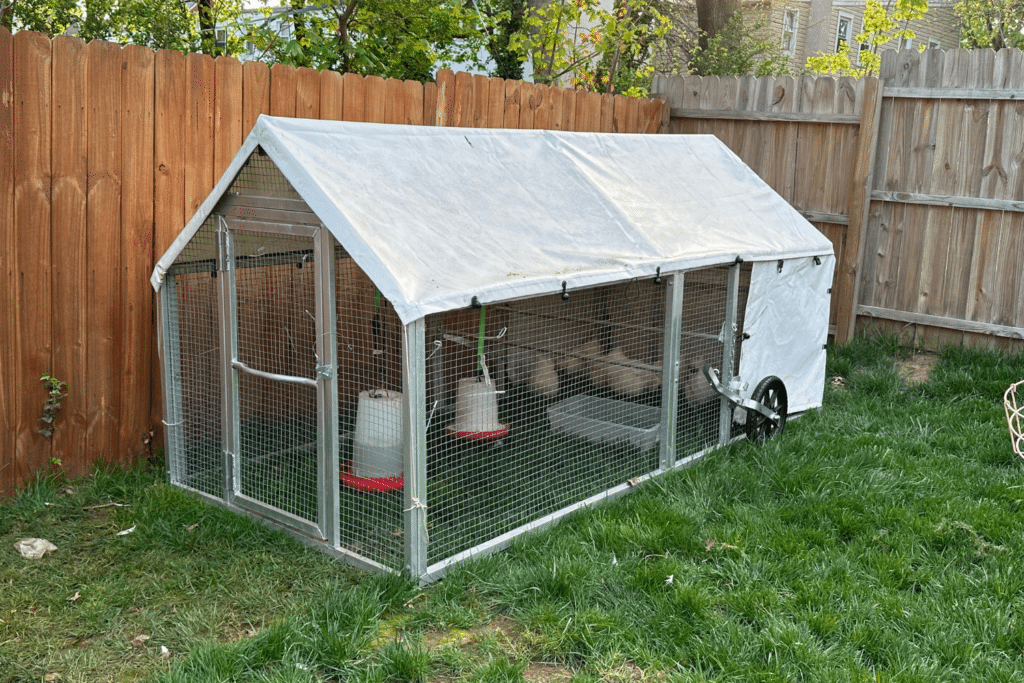
Before bringing backyard chickens into your life, it’s crucial to check the local regulations regarding keeping them. The regulations in your area will decide if you can raise chickens on your property and the specific rules you need to follow.
Local chicken ordinances govern the keeping of chickens in cities and towns, dictating the number of birds allowed, coop specifications, and distances from neighboring property lines. Responsible chicken-keeping habits are the key to fostering a harmonious coexistence between enthusiasts and their neighboring communities.
Rather than enduring the chaos of cock-a-doodle-doo dominating the night air, cities came up with a plan. To minimize the issues backyard chickens might bring, officials created chicken ordinances as a sensible move to protect public harmony.
Public health is another big consideration. Improperly managed coops can lead to unsanitary conditions or even disease outbreaks. It’s really important to have these ordinances in place to protect humans, other animals, and chickens.
Most chicken ordinances limit flock size to around 4-6 hens. Roosters are often prohibited in heavily populated areas due to noise concerns.
Being aware of spatial boundaries between your neighbors and property lines is also really important. Oftentimes, there are regulations about how close your coop can be to your neighbor’s property. Don’t forget to maintain your chicken house frequently to prevent unpleasant odors.
Some cities also require permits, have minimum square footage per bird, or ban slaughtering. It’s important to read the fine print of your local chicken ordinance.

Before you start dreaming of fresh eggs, you need to make sure backyard chickens are allowed where you live. The rules can vary a lot from place to place. Follow this guide to find out if backyard chickens are legal in your area.
Your first step should be your city’s zoning laws and animal ordinances. These will spell out if and how you can keep chickens on your property.
In general, urban and suburban areas have stricter rules than rural zones, but it depends on your specific location. The best way to find out is to check your city’s website or contact the zoning department directly.
Backyard chickens may sometimes require a chicken permit. Check with your local authorities to see if that is the case. Many areas require a permit to ensure your flock of feathered friends isn’t disrupting the neighborhood peace. Prepare to submit your coop design and, bonus tip, you could get neighbor approval in writing.
Permit fees can range from $20 to over $100. And you might need to renew annually or whenever your chicken setup changes. It’s an extra hoop to jump through, but it’s important to do things by the book.
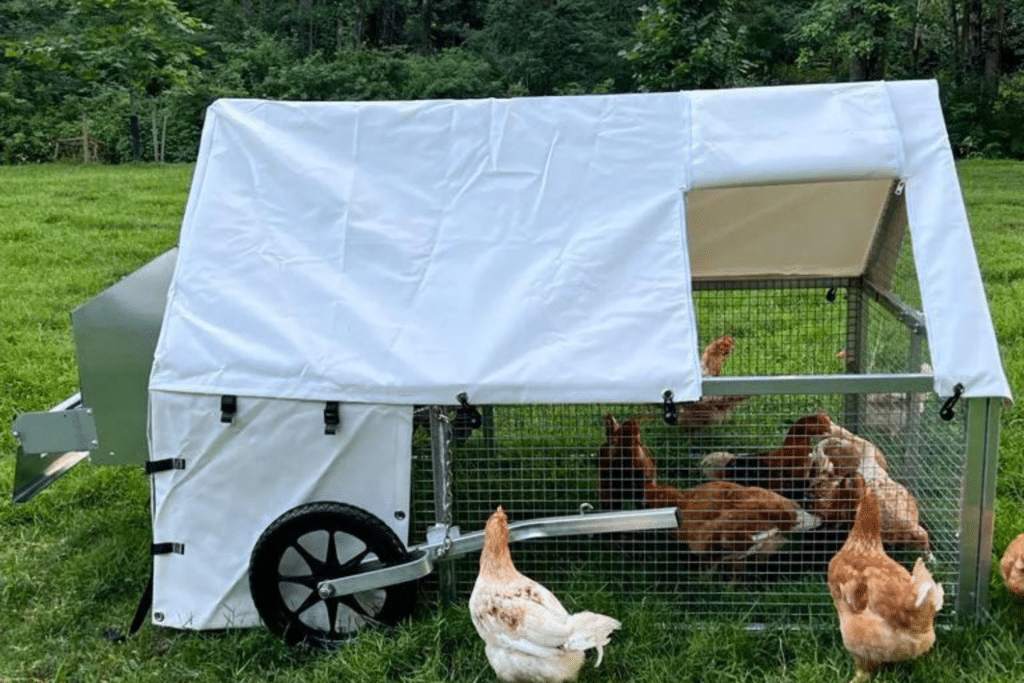
If you’ve lucked out and are living in an area where chickens are allowed, congratulations! But before getting into all the delight and companionship of having chickens in your yard, make sure you’re prepared for the responsibilities that come with backyard chickens.
The foundation of any great chicken setup lies in its coop. Make sure you’re providing a lush, accessible space for your flock, considering a minimum of 2-3 square feet per hen. Nesting boxes and roosting bars would be a great addition to the structure as well.
Predator-proofing is key – use sturdy wire mesh and secure latches to keep your feathered friends safe. And don’t forget about ventilation and insulation to protect from the elements. For options that will ensure safety and comfort with your chickens, check out our mobile chicken coops.
Regular cleaning is a must to keep odors down and your chickens healthy. Scoop out droppings and soiled bedding at least once a week.
Every few months, do a deep clean with soapy water and a disinfectant. Let the coop dry completely before adding fresh bedding. Your nose (and your neighbors) will thank you.
New developments in coop maintenance techniques show that simply covering the floor with straw or pine shavings can dramatically reduce odors. When it comes to tackling unwanted smells, don’t forget about odor-neutralizing products and proper airflow like a small fan.
Thinking like a good neighbor is the secret to avoiding chicken conflicts. This means making sure to follow your local chicken ordinance to the letter, keeping your coop squeaky clean, and maintaining it regularly. After all, a happy coop means happy chickens and fewer conflicts all around.
Sharing some fresh eggs with your neighbors never hurts either. A little neighborly goodwill can prevent a lot of problems down the road.
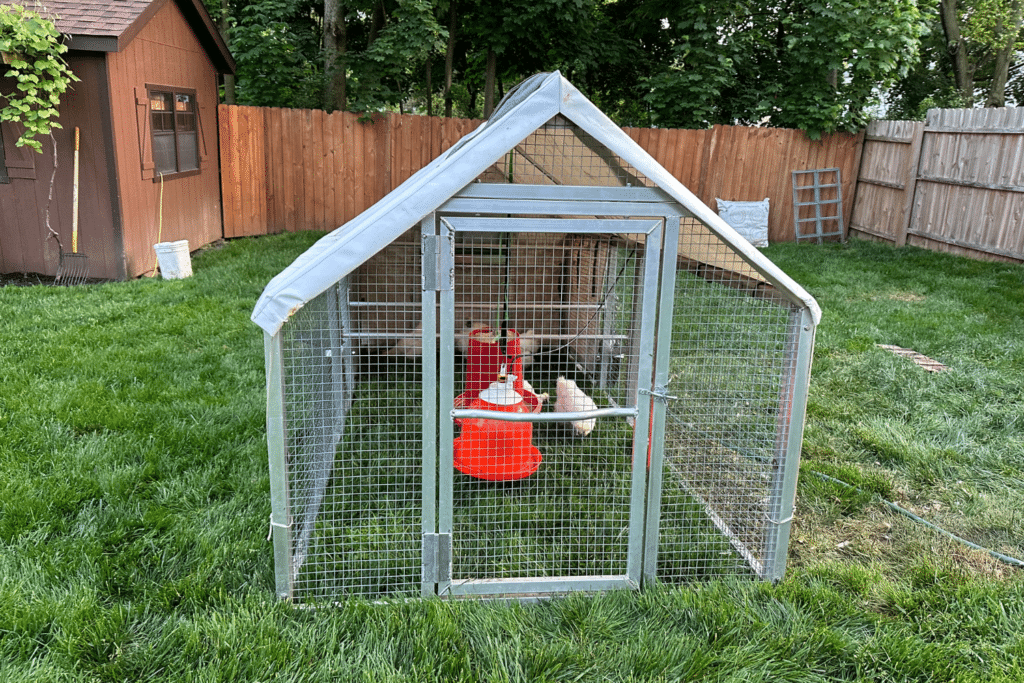
So why go through all the trouble of navigating chicken ordinances and being a responsible owner? Because backyard chickens are awesome, that’s why. Here at Happy Farmer, we know the joy that comes from getting natural meat or eggs from your poultry. We aim for all of our chicken coops to satisfy your chickens and, therefore, satisfy you as well.
The most obvious benefit of backyard chickens is the steady supply of fresh eggs. Store-bought eggs just can’t compare to the ones laid by your own hens. You know exactly where your eggs are coming from, and you don’t have to worry that the chickens that are producing the eggs are living in terrible conditions.
Take a page from Mother Nature’s book and introduce some pest-friend chickens to your outdoor space. These ladies (and gents.) are renowned for their bug-catching skills, and they’ll have your garden looking and feeling like a haven in no time.
Create your own army of slugs, grubs, and even small rodents as natural allies in your quest for a balanced ecosystem. They’ll happily snack on a vast array of pesky critters, earning their keep as your trusty organic pest controllers.
Chicken manure is gardening gold. It’s full of nitrogen and other nutrients that plants love. The key is to compost it first so it doesn’t burn tender roots.
You can mix chicken droppings with straw, leaves, or wood chips in a compost bin. Turn it every few weeks and let it break down fully before spreading it on your garden. Your plants will thank you.
The thrill of raising backyard chickens doesn’t just bring in a fresh supply of eggs – it’s also a teaching tool. Watching a chick emerge from its egg and grow into a confident hen lets kids learn essential life skills like patience and responsibility.
The importance of empathy and emotional intelligence can’t be overstated. Moreover, being able to connect with our furry friends while caring for them nurtures these vital skills. Adding to the excitement, there’s no experience quite like collecting your first egg, a memory to cherish forever.
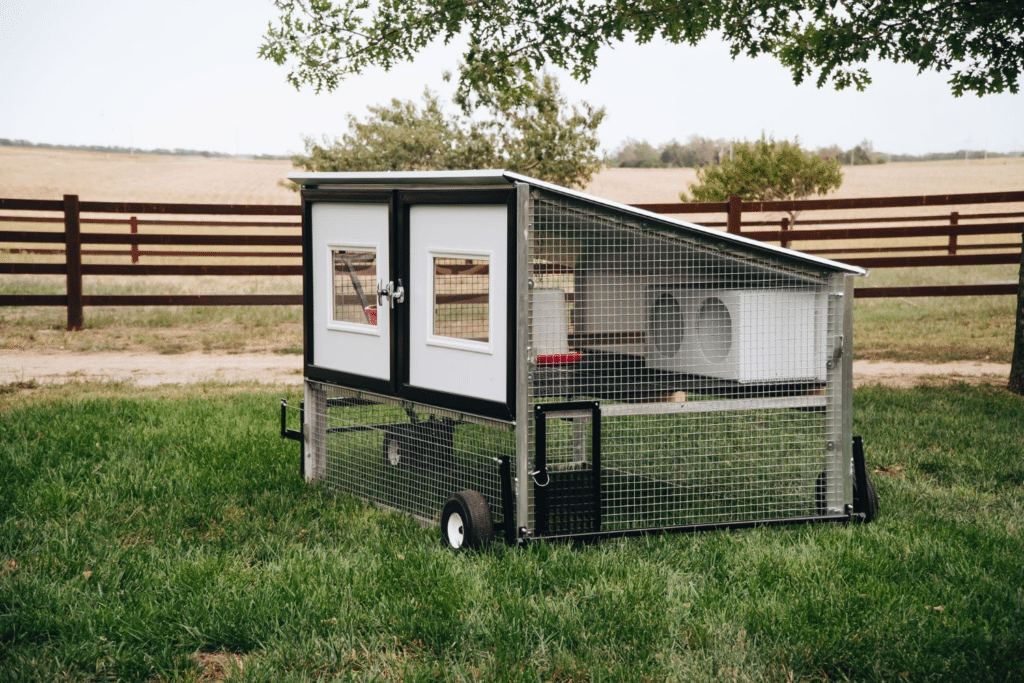
Navigating the complexities of your local chicken ordinance may seem daunting at first, but with a little research and preparation, you can confidently and legally raise backyard chickens. By understanding the reasoning behind these regulations and working within their guidelines, you’ll be able to enjoy the many benefits of keeping chickens while being a responsible and considerate neighbor.
If you’re dreaming of backyard chickens but are held back by concerns over local regulations, rest assured that compliance with ordinances is achievable and worth the effort. By implementing best practices in coop design, managing waste, and engaging with your community, you can transition from an uncertain enthusiast to a confident backyard chicken keeper.
Once you’re ready to begin searching for the perfect chicken coop, check out our available stock of mobile chicken coops for your backyard.

Get Free Nationwide Shipping (lower 48 states) on all mobile coops, tractor coops, and accessories.
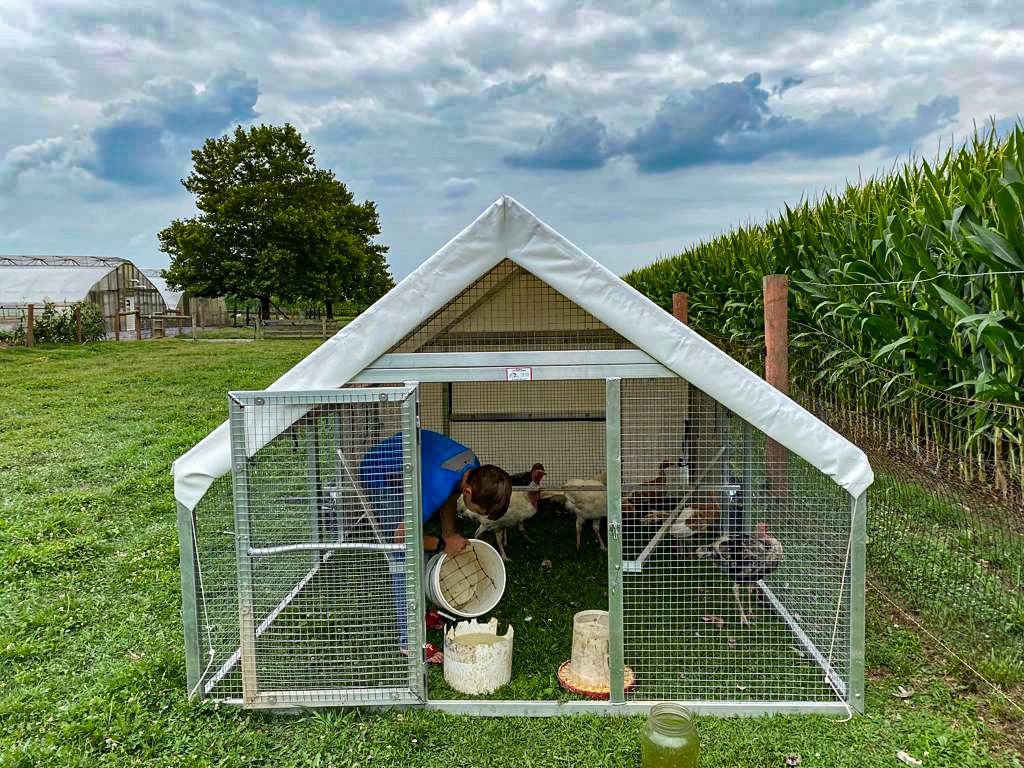
If you are looking for one or multiple mobile coops for a farm, school, or other use we would be happy to quote a price for you. Fill out the form and we will be in touch!